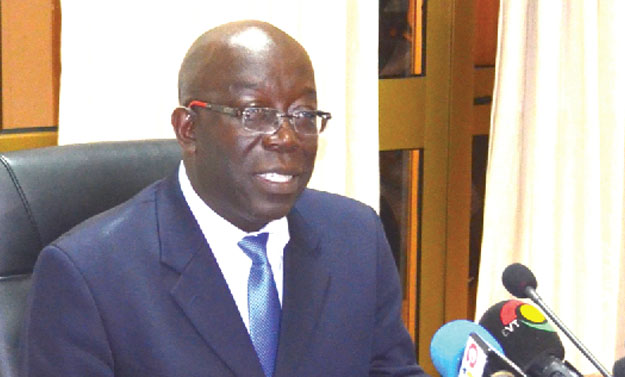Dr. John Ofori-Tenkorang
An independent review and baseline assessment carried out by PricewaterhouseCoopers (PwC) recently on the operations of the Social Security and National Insurance Trust (SSNIT) revealed that management did not disclose the full extent of issues relating to the automation project to the board.
It explained that the User Acceptance Tests (UAT) report dated 31 May, 2015 indicated significant challenges with the OBS project.
However, there was no indication that such issues were fully disclosed to the board.
In addition, the report presented to the board and management of SSNIT recently in Accra said on 24 November, 2016 even though management presented to the board that the ICT initiatives were ongoing, there were significant functional challenges with the OBS.
Lack of accountability
It revealed that the board did not appear to demand accountability from management when the issue of overspending and poor project management was brought to its attention.
“There is no evidence that the board’s directive issued on 24 November, 2016 for an audit of the project was carried out.”
Project planning
It said the development of the Functional Change Document, which sets out the gaps between the vendor’s base software and the requirement of SSNIT, was done mainly based on interactions with users, without recourse to the requirements in the signed contract documents, adding that this resulted in differences between the FCD and the contract requirements.
“As a result, some requirements listed in the contract were not captured in the deployed applications.”
Budget
The original budget for the ICT strategic plan for the company, which included the automation project, approved by the board in 2010 stood at $38,618,588, but after a series of revisions between 2011 and 2016, the total budgeted amount turned out to be $199,071,704.98.
Reasons for automation
In 2010, SSNIT identified shortfalls in its operational processes and business applications, which necessitated the execution of an automation project.
Some of these shortfalls included the lack of an integrated and centralized web centric system to facilitate one point of data entry and one source of information to stakeholders, lack of alternative channels to transact business with SSNIT, lack of effective monitoring and verification of information submitted by both internal and external customers of the Trust and ineffective collaboration between SSNIT and its business partners i.e. Ghana Revenue Authority (GRA), National Identification Authority (NIA), etc.
Variable costs
The report stated that the OBS warranty expired on 31 August, 2017, and the software “is currently in a state where SSNIT needs to engage the services of the vendor to perform certain key changes to enable the smooth operation of core pension functions.”
Payments made for change requests as at December 2016 amounted to $7,503,800.
These change requests stem from issues reported from the UAT, as well as new requests to ensure processing efficiency.
“Subsequent to these payments, there are still outstanding issues yet to be resolved. The daily rate for previous change requests was $850. We are however unable to quantify the cost of unresolved functional issues since the hours involved to rectify the issues have not been determined.”
Project payments
On these, PwC noted: “We were unable to determine the actual payments made by SSNIT for each of these components of the automation project. This is because separate project codes were not established for accounting purposes. Payments provided to us were in respect of all transactions with the service providers. Due to the fact that these service providers offer other services to SSNIT, it was impossible within the timeframe of the assignment to distinguish between which costs relate solely to each component or sub-component of the automation project.”
Going forward, it advised that separate project accounts should be maintained for each project to ensure that payments can subsequently be reconciled to contractual provisions.
By Samuel Boadi


